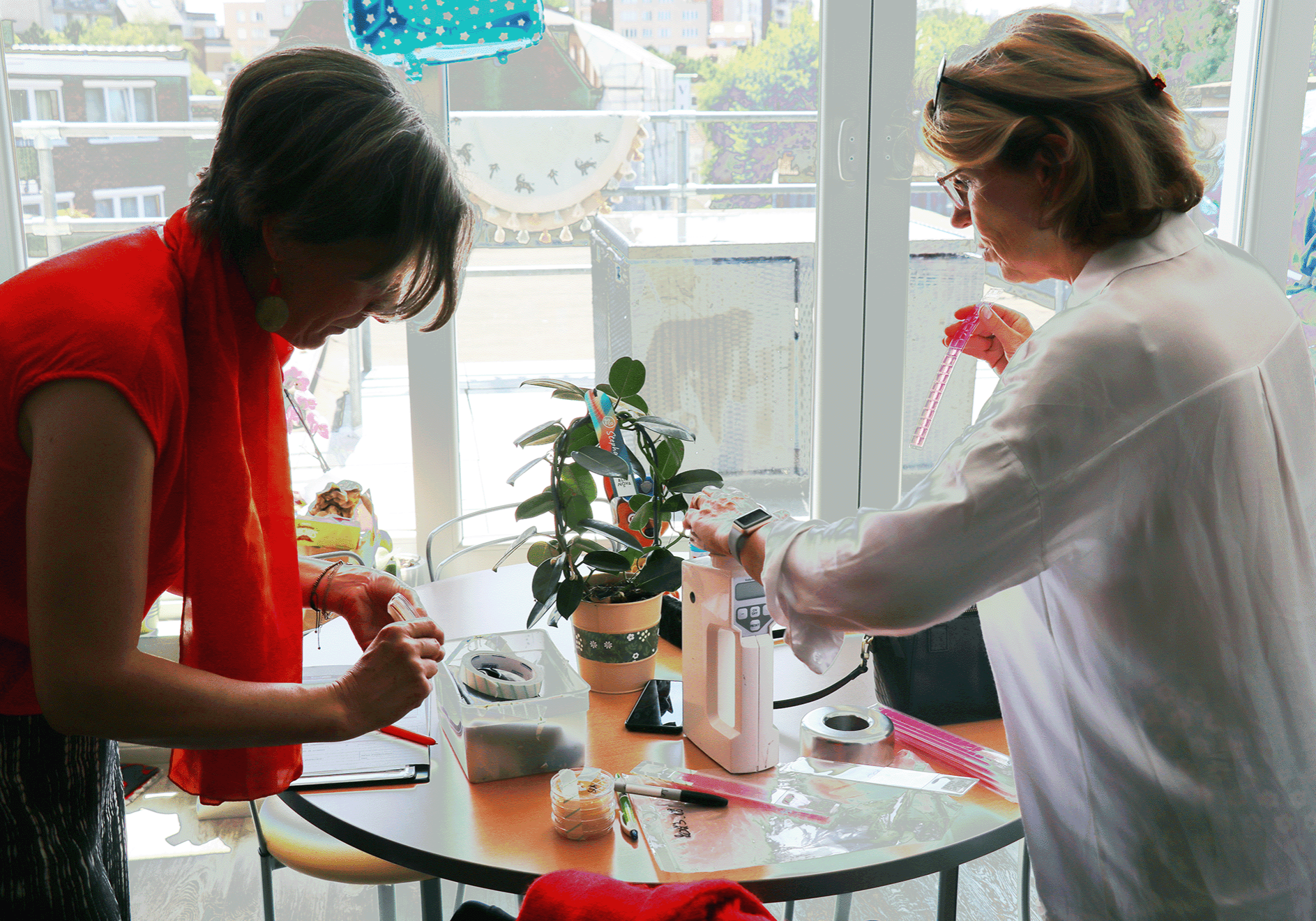Editorial
What is the power of community? In edition 21 we uncover stories from across Europe to find out the true meaning of community, talking with the people working at the heart of our society to help and support those most vulnerable. From Spain to Slovakia, Ireland to Belgium, we learn that no matter how big or small the intervention is, supportive and enabling environments can be the greatest ally to our health systems. EuroHealthNet's, Director, Caroline Costongs draws on personal experience from her involvement in a neighbourhood action group. Through this we see that there is much more potential for communities and local authorities to take action to improve environments to enable healthy living for all.
McDonald's wants to open a drive-through ‘restaurant’ in my village, a village located just outside of Brussels. If the plans are successful 4,000 young people will have easy access to fast food, as it will be located within a 400 metre radius of four schools and close to another four schools nearby. A nice business model, you would think, considering McDonald's themself indicates that it relies mainly on impulse consumers, which young people are.
After I realised that local authorities in Belgium have no legal instruments to refuse unhealthy outlets from settling in their communities based on the populations' right to health, I joined a local action group protesting the opening of the chain's newest location. We launched an online petition, filed objections against McDonald's application for a permit, talked to journalists and citizens, and met with the local mayor as well as the federal health minister. While engaging with this action group, I got some valuable insights that are important to take forward at the national and EU levels, as well as key to EuroHealthNet's work.
Commercial determinants of health
Firstly, fast food, including ultra-processed food (UPF), is addictive for many. The high levels of sugar, salt, and fat, can stimulate the brain's reward system, trigger cravings, and promote overeating. Flavour-enhancing additives make the food even more appealing. Quick, easy, and affordable access can contribute to frequent consumption and reinforce the habit of eating this energy-dense and nutrient-poor food, leading to the dramatic increase in overweight and obesity we see in our societies. The UPF industries use similar misleading tactics as the alcohol and tobacco industries, so we need to be vigilant, join forces, and step up our (legislative) actions against the commercial determinants of health.
Over time, the food-environment around schools has become increasingly unhealthy. In lower socio-economic communities, you can find more and more unhealthy outlets, while the healthy provision of food is declining. An unhealthy food environment is to a great extent responsible for the obesity epidemic, thereby leading to widening health inequalities. Public health workers need to urgently call for more ambitious and mandatory policies at the national and EU levels to create healthy food environments and bring down the high burden of non-communicable diseases. It may be too late to refuse the McDonald's outlet in my village, but hopefully not too late for the additional 20 “restaurants” that McDonald's plans to open in Flanders and even more across Europe.
Supportive and enabling environments
Our environments and the places where we live determine, to a great extent, how healthy we are. Supportive and enabling environments, in terms of both physical as well as cultural surroundings, are crucial in supporting our ability to live a healthy life. Sadly, too often the role of such factors are ignored. Even though many people live in environments that are unsafe, unstable or polluted, a blaming culture still exists. Individuals are frequently held responsible for not resisting the social pressures and plenitude of ultra-processed food available, or not taking part in enough physical activity, even though their environments simply do not enable such active and healthy living.
School exclusion zones, for example, can enable local governments to restrict fast food outlets and control other unhealthy food retail near schools. Similarly, urban planning regulations can focus on ensuring adequate green space, more car-free zones, and safe bicycle lanes, and encourage more outside play and active travel.
Creating change at all levels
Local authorities must be enabled to act in their communities, to be provided with appropriate legal instruments to protect citizens from health-harmful environments, and to make the “healthy thing to do, the easy thing to do.” In this edition, EuroHealthNet’s Ingrid Stegeman and BZgA's Christina Platz explore the role that local governments can play in improving living environments and making the healthy choice the easy choice, for everyone.
Many inspiring examples of new and continued approaches that also help protect the vulnerable can already be found across Europe. Some of those we managed to capture in the various articles in this new edition of the EuroHealthNet Magazine, please find a short overview here.
Strengthening health promotion through communities and peer-support
Current crises have led to a stark increase in social exclusion, poverty and inequality across Europe. Sophie McGannan from the NHS Health and Europe Centre discusses the impact of ENSURE, which produced a holistic model for radical system redesign to break down existing professional silos in service delivery on the local level and introduce a peer-support approach.
In Spain, the Cultura en Vena Foundation is working to improve people's lives by injecting culture in places where it does not usually reach. Research has shown that artistic interventions can have a significant impact on our health. From alleviating risk behaviours through reading, to the power of music in promoting social engagement and connectivity, which in turn can reduce stress and anxiety. Juan Alberto García de Cubas walks us through the Foundation to illustrate just how vital arts and culture are to our health.
The Men's Sheds initiative is a grassroots initiative that supports men to maintain and improve their wellbeing on their own terms and within their own communities. It is taking steps to support men and break the stigma that men should never feel lonely or vulnerable. In the heart of Ireland, EuroHealthNet’s Caoimhe Kelly uncovers the inspirational stories behind this movement and explores how it has become a beacon of support, hope, and leisure for many in the area.
One of the most vulnerable population groups in the European region is that of the Roma people with Roma women’s health being highly vulnerable. Learning about and respecting their cultural values and fostering collaboration rather than making decisions for them builds trust and helps to reduce inequalities and fight racism and biases. In Greece, the Prolepsis Institute has taken an important step towards empowering young Roma women and helping them learn about and advocate for healthy behaviours. It co-developed appropriate education material about vaccination, gynaecological health, smoking and nutrition, and trained young Roma women to transfer this knowledge to their community.


Ensuring that basic needs are met
It is estimated that 1 in 10 girls within the EU cannot afford sanitary products. This causes worry and anxiety, as well as health issues as those in need turn to the use of other products such as toilet paper or wear products longer than recommended. Scotland has adopted a revolutionary law - a law that is set to empower women throughout the country - enabling everyone the right to free sanitary products. Director of Tackling Child Poverty and Social Justice in the Scottish Government, Shirley Laing, discusses its impact.
The rise of energy cafés has provided experts with the unique opportunity to help people address energy poverty, by providing cost-saving strategies and advice in an informal, open, and inclusive setting, empowering those who are most vulnerable. Dr. Neil Simcock from Liverpool John Moores University explains the impact of such initiatives and the lessons learned.
Health through an environmental lens
COVID-19 fundamentally changed our relationship with the outdoors. With climate anxiety growing across Europe, how can we better approach our urban planning to benefit our health, the planet, and the economy? Mark Nieuwenhuijsen from ISGlobal tells us about Barcelona's 'superblocks', an urban planning concept that restricts vehicle traffics in certain streets, creating space for active transport as well as expanding green space in cities.
We spent the afternoon with an intervention team from Brussels Environment to discover more about the crucial, preventative work they do to counteract the harmful effects of indoor pollutants. Even though we spend on average around 90% of our time indoors, little is known about the long-term health effects of household air pollution.



Caroline Costongs
Caroline Costongs is Director of EuroHealthNet and expert in public health and health promotion. Caroline leads a multi-disciplinary team working on European and (sub)national policy, advocacy, research and capacity building addressing health inequalities. Caroline is active in various EU and WHO fora, Advisory Boards and various EU projects, and is a member of the ICC – International Council for the European Public Health Conference.
